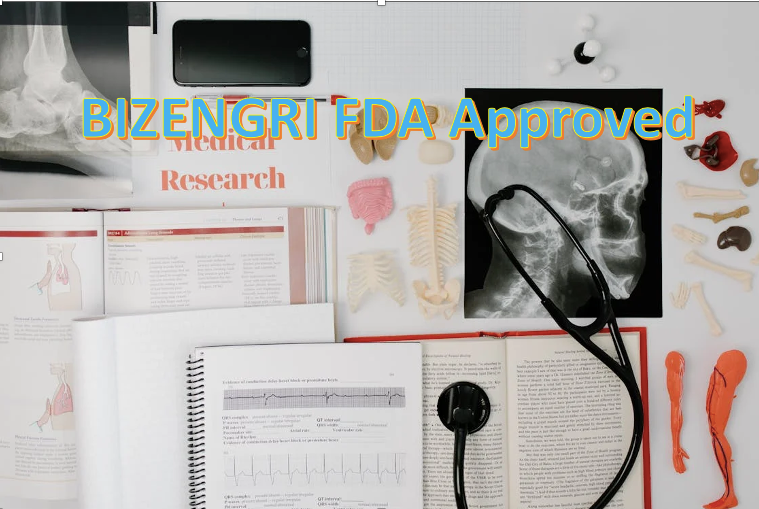Descovy (Gilead's Sciences) is a formulation of two antiviral medicines, Tenofovir alafenamide and emtricitabine. It is indicated in the treatment of HIV-1 infections
Indications of Descovy (Tenofovir alafenamide and emtricitabine):
-
HIV-1 infection:
-
Patients weighing ≥35 kg:
- It is indicated for the treatment of HIV-1 infection in combination with other antiretroviral agents in adults and children
-
Pediatric patients weighing ≥25 kg and <35 kg:
- In combination with antiretroviral agents other than protease inhibitors that require a CYP3A inhibitor.
- Limitations of use: Use as preexposure prophylaxis (PrEP) to reduce the risk of sexually acquired HIV-1 in high risk adults is not recommended.
-
Tenofovir alafenamide and emtricitabine (Descovy) dose in adults:
Treatment dose of HIV-1 infection:
- One tablet (emtricitabine 200 mg/tenofovir alafenamide 25 mg) per oral once daily
Descovy (Tenofovir alafenamide and emtricitabine) dose in children:
Note: Patients should be tested for hepatitis B infection,baseline estimated creatinine clearance, urine glucose, and urine protein before starting therapy.
Descovy dose in the treatment of HIV-1 infection:
-
Children and Adolescents weighing ≥25 kg:
- One tablet per oral once daily.
- Note: In patients weighing <35 kg, efficacy has not been established for coadministration with an HIV-1 protease inhibitor administered with either ritonavir or cobicistat
Pregnancy Risk Category: B
- According to the Health and Human Services (HHS), Perinatal HIV Guidelines, data on the use of combination therapy in pregnant women with antiretroviral-naive status is not available.
- If effective viral suppression is achieved, adequate drug exposure, good tolerance, and no contraindications to use during pregnancy, stable antiretroviral treatment (ART) can be continued.
- For more information, refer to the individual monographs.
Use of Tenofovir alafenamide or emtricitabine during breastfeeding
- Breast milk contains Emtricitabine.
- Tenofovir alafenamide excretion in breast milk is not known.
- For more information, refer to the individual monographs.
Descovy Dose adjustment in Kidney Disease:
-
CrCl ≥30 mL/minute:
- No dosage adjustment necessary.
-
CrCl <30 mL/minute:
- Use is not recommended.
Descovy Dose adjustment in liver disease:
-
Mild-to-moderate impairment (Child-Pugh class A or B):
- No dosage adjustment necessary.
-
Severe impairment (Child-Pugh class C):
- There are no dosage adjustments provided in the manufacturer's labeling.
Side Effects of Descovy (Tenofovir alafenamide and emtricitabine):
All adverse drug reactions are from combination therapy with cobicistat plus elvitegravir in treatment-naïve and treatment-experienced patients. Also, see individual agents (Tenofovir alafenamide and emtricitabine)
-
Gastrointestinal:
- Nausea
-
Neuromuscular & Skeletal:
- Decreased Bone Mineral Density
- Bone Fracture
Side effects of Descovy (Frequency not known):
-
Endocrine & Metabolic:
- Increased HDL Cholesterol
- Increased LDL Cholesterol
- Increased Serum Cholesterol
- Increased Serum Triglycerides
-
Hepatic:
- Exacerbation Of Hepatitis B
-
Renal:
- Increased Serum Creatinine
Contraindications to Descovy (Tenofovir alafenamide and emtricitabine):
- The US labeling of the manufacturer does not list any contraindications.
Canadian labeling: Additional contraindications not in US labeling
- Hypersensitivity to emtricitabine or tenofovir alafenamide or any other component of the formulation
Warnings and precautions
-
Immune reconstitution syndrome:
- Combination antiviral treatment is known to cause an immune reconstitution syndrome. This syndrome results in an immune response to an indolent, residual opportunistic HIV infection, or activation of autoimmune diseases (eg, Graves disease, polymysitis, Guillain Barre syndrome) later on in therapy.
- These conditions require further management and assessment.
-
Lactic acidosis/hepatomegaly:
- The combination of nucleoside analogs can cause lactic acidosis or severe hepatomegaly with Steatosis, which could be life-threatening.
- Patients with laboratory or clinical findings that suggest lactic acidosis (or pronounced livertoxicity) should not be treated.
-
Toxicity in the renal system:
- Tenofovir can cause Fanconi syndrome or acute renal failure.
- Patients who are taking nephrotoxic drugs, such as NSAIDs, or have preexisting renal impairment are at greater risk.
- Before and during antiviral treatment, it is important to check the renal functions, including creatinine clearance, urine proteins, and urine glucose.
- Patients suffering from chronic kidney disease should have their phosphorus levels checked as they are at greater risk for developing Fanconi syndrome.
- Therapy should be stopped if there is evidence of Fanconi syndrome or significant impairment of renal function.
-
Chronic Hepatitis B: [US-Boxed Warning]
- This therapy is not recommended for chronic hepatitis B.
- It is not known if HIV-1 and HBV coinfections are safe and effective.
- Acute, severe HBV exacerbations can occur after stopping treatment.
- Patients with HIV-1 and HBV should have liver function tests and follow-up in the clinic and lab for at least a few months.
- Patients with advanced cirrhosis or hepatic disease (posttreatment HBV exacerbations could lead to hepatic dysfunction and liver failure) should receive treatment for hepatitis B.
- All HIV-positive patients should have their HBV test done before starting treatment.
-
Renal impairment
- It is not recommended for patients suffering from CrCl levels below 30 mL/minute.
Tenofovir alafenamide and emtricitabine: Drug Interaction
|
Acyclovir-Valacyclovir |
May increase the serum concentration of Tenofovir Products. Tenofovir Products may increase the serum concentration of Acyclovir-Valacyclovir. |
|
Aminoglycosides |
May increase the serum concentration of Tenofovir Products. Tenofovir Products may increase the serum concentration of Aminoglycosides. |
|
Cabozantinib |
MRP2 Inhibitors may increase the serum concentration of Cabozantinib. |
|
Cidofovir |
May increase the serum concentration of Tenofovir Products. Tenofovir Products may increase the serum concentration of Cidofovir. |
|
Cobicistat |
May enhance the adverse/toxic effect of Tenofovir Products. More specifically, cobicistat may impair proper tenofovir monitoring and dosing. |
|
Ganciclovir-Valganciclovir |
Tenofovir Products may increase the serum concentration of Ganciclovir-Valganciclovir. Ganciclovir-Valganciclovir may increase the serum concentration of Tenofovir Products. |
|
Orlistat |
May decrease the serum concentration of Antiretroviral Agents. |
|
Sofosbuvir |
May increase the serum concentration of Tenofovir Alafenamide. |
|
Diclofenac (Systemic) |
May enhance the nephrotoxic effect of Tenofovir Products. Management: Seek alternatives to this combination whenever possible. Avoid use of tenofovir with multiple NSAIDs or any NSAID given at a high dose. |
|
Nonsteroidal Anti-Inflammatory Agents |
May enhance the nephrotoxic effect of Tenofovir Products. Management: Seek alternatives to these combinations whenever possible. Avoid use of tenofovir with multiple NSAIDs or any NSAID given at a high dose. |
|
Adefovir |
May diminish the therapeutic effect of Tenofovir Products. Adefovir may increase the serum concentration of Tenofovir Products. Tenofovir Products may increase the serum concentration of Adefovir. |
|
CarBAMazepine |
May decrease the serum concentration of Tenofovir Alafenamide. |
|
Cladribine |
Agents that Undergo Intracellular Phosphorylation may diminish the therapeutic effect of Cladribine. |
|
Fosphenytoin-Phenytoin |
May decrease the serum concentration of Tenofovir Alafenamide. |
|
LamiVUDine |
May enhance the adverse/toxic effect of Emtricitabine. |
|
Oxcarbazepine |
May decrease the serum concentration of Tenofovir Alafenamide. |
|
PHENobarbital |
May decrease the serum concentration of Tenofovir Alafenamide. |
|
Primidone |
May decrease the serum concentration of Tenofovir Alafenamide. |
|
Rifabutin |
May decrease the serum concentration of Tenofovir Alafenamide. |
|
RifAMPin |
May decrease the serum concentration of Tenofovir Alafenamide. |
|
Rifapentine |
May decrease the serum concentration of Tenofovir Alafenamide. |
|
St John's Wort |
May decrease the serum concentration of Tenofovir Alafenamide. |
|
Tipranavir |
May decrease the serum concentration of Tenofovir Alafenamide. |
Monitoring parameters:
- LFTs
- CD4 count, HIV RNA plasma levels;
- serum creatinine, urine glucose, urine protein (before starting during therapy)
- Serum phosphorus (in patients with chronic kidney disease)
- HBV testing before starting therapy.
- Patients with HIV and HBV coinfection should be monitored for several months following therapy discontinuation.
- BMD (patients with a history of bone fracture or have risk factors for bone loss)
How to administer Descovy (Tenofovir alafenamide and emtricitabine)?
- It should be given orally with or without food.
Mechanism of action of Descovy (Tenofovir alafenamide and emtricitabine):
- Combination of nucleoside and nucleotide retranscriptase inhibitors
- Emtricitabine can be used as a cytosine analogue, while tenofovir alafenamide fumarate (TAF), is an analog to adenosine 5-'-monophosphate.
- Each drug inhibits viral replication by interfering in HIV viral RNA dependent DNA Polymerase activities.
Protein binding:
- Emtricitabine: <4%;
- TAF: 80%
Metabolism:
- Emtricitabine: Not significantly metabolized;
- TAF: Primarily intracellular metabolism; minimal extent by CYP3A.
Half-life elimination:
- Emtricitabine: 10 hours;
- TAF: 0.51 hours.
Time to peak plasma:
- Emtricitabine: 3 hours;
- TAF: 1 hour.
Excretion:
- Emtricitabine:
- Urine (70%);
- feces (13.7%);
- TAF:
- Urine (<1%),
- feces 31.7%).
Clearance: Emtricitabine and tenofovir may be eliminated by both glomerular filtration and active tubular secretion.
International Brands of Tenofovir alafenamide and emtricitabine:
- Descovy
Tenofovir alafenamide and emtricitabine Brands in Pakistan:
No Brands Available in Pakistan.

 Injection for familial chylomicronemia syndrome.jpeg)


